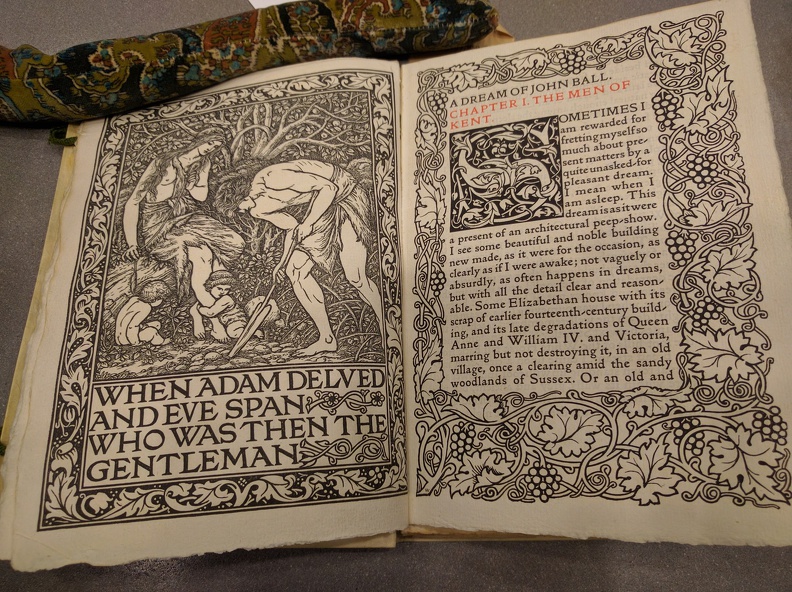Review:
Neverness, by David Zindell
| Publisher: |
Bantam Spectra |
| Copyright: |
May 1988 |
| Printing: |
July 1989 |
| ISBN: |
0-553-27903-3 |
| Format: |
Mass market |
| Pages: |
552 |
Mallory Ringess is a Pilot, one of the people who can guide a lightship
through interstellar space from inside the dark cocoon and biotech
interface that allows visualization of the mathematics of interstellar
travel. At the start of the book, he's young, arrogant, impulsive, and
has a deeply unhealthy relationship with Leopold Soli, the Lord Pilot and
supposedly his uncle by marriage (although they share a remarkable
physical resemblance). An encounter with his uncle in a bar provokes a
rash promise, and Ringess finds himself promising to attempt to map the
Solid State Entity in search of the Elder Eddas, a secret of life from the
mythical Ieldra that might lead to mankind's immortality.
The opening of
Neverness is Ringess's initial voyage and brash
search, in which he proves to be a capable mathematician who can navigate
a region of space twisted and deformed by becoming part of a transcendent
machine intelligence. The knowledge he comes away with, though, is
scarcely more coherent than the hints Soli relates at the start of the
story: the secret of mankind is somehow hidden in its deepest past. That,
in turn, provokes a deeply bizarre trip into the ice surrounding his home
city of Neverness to attempt to steal biological material from people who
have recreated themselves as Neanderthals.
Beyond that point, I would say that things get even weirder, but weird
still implies some emotional connection with the story. I think a more
accurate description is that the book gets more incoherently mystical,
more hopelessly pretentious, and more depressingly enthralled by childish
drama. It's the sort of thing that one writes if one is convinced that
the Oedipal complex is the height of subtle characterization.
I loathed this book. I started loathing this book partway through
Ringess's trip through the Solid State Entity, when Zindell's prose
reached for transcendent complexity, tripped over its own shoelaces, and
fell headlong into overwrought babbling. I continued reading every page
because there's a perverse pleasure in hate-reading a book one dislikes
this intensely, and because I wanted to write a review on the firm
foundation of having endured the entire experience.
The paperback edition I have has a pull quote from Orson Scott Card on the
cover, which includes the phrase "excellent hard science fiction." I'm
not sure what book Card read, because if this is hard science fiction,
Lord of the Rings is paranormal romance. Even putting aside the
idea that one travels through interstellar space by proving mathematical
theorems in artificially dilated time (I don't think Zindell really
understands what a proof is or why you write one), there's the whole
business with stopping time with one's mind, reading other people's minds,
and remembering one's own DNA. The technology, such as it is, makes
considerably less sense than
Star Wars. The hard SF requirement to
keep technology consistent with extrapolated science is nowhere to be
found here.
The back-cover quote from the
St. Louis Post-Dispatch is a bit more
on-target: "Reminiscent of Gene Wolfe's
New Sun novels... really
comes to life among the intrigues of Neverness." This is indeed
reminiscent of Gene Wolfe, in that it wouldn't surprise me at all if
Zindell fell in love with the sense of antiquity, strangeness, and hints
of understood technology that Wolfe successfully creates and attempted to
emulate Wolfe in his first novel. Sadly, Zindell isn't Wolfe. Almost no
one is, which is why attempting to emulate the extremely difficult feat
Wolfe pulls off in the
Book of the New
Sun in your first novel is not a good idea. The results aren't pretty.
There is something to be said for resplendent descriptions, rich with
detail and ornamental prose. That something is "please use sparingly and
with an eye to the emotional swings of the novel." Wolfe does not try to
write most of a novel that way, which is what makes those moments of
description so effective. Wolfe is also much better at making his
mysteries and allusions subtle and unobtrusive, rather than having the
first-person protagonist beat the reader over the head with them for pages
at a time.
This is a case where showing is probably better than telling. Let me
quote a bit of description from the start of the book:
She shimmers, my city, she shimmers. She is said to be the most
beautiful of all the cities of the Civilized Worlds, more beautiful
even than Parpallaix or the cathedral cities of Vesper. To the west,
pushing into the green sea like a huge, jewel-studded sleeve of city,
the fragile obsidian cloisters and hospices of the Farsider's Quarter
gleamed like black glass mirrors. Straight ahead as we skated, I saw
the frothy churn of the Sound and their whitecaps of breakers crashing
against the cliffs of North Beach and above the entire city, veined
with purple and glazed with snow and ice, Waaskel and Attakel rose up
like vast pyramids against the sky. Beneath the half-ring of extinct
volcanoes (Urkel, I should mention, is the southernmost peak, and
though less magnificent than the others, it has a conical symmetry
that some find pleasing) the towers and spires of the Academy
scattered the dazzling false winter light so that the whole of the Old
City sparkled.
That's
less than half of that paragraph, and the entire book is
written like that, even in the middle of conversations. Endless, constant
words piled on words about absolutely everything, whether important or
not, whether emotionally significant or not. And much of it isn't even
description, but philosophical ponderings that are desperately trying to
seem profound. Here's another bit:
Although I knew I had never seen her before, I felt as if I had known
her all my life. I was instantly in love with her, not, of course, as
one loves another human being, but as a wanderer might love a new
ocean or a gorgeous snowy peak he has glimpsed for the first time. I
was practically struck dumb by her calmness and her beauty, so I said
the first stupid thing which came to mind. "Welcome to Neverness," I
told her.
Now, I should be fair: some people like this kind of description, or at
least have more tolerance for it than I do. But that brings me to the
second problem: there isn't a single truly likable character in this
entire novel.
Ringess, the person telling us this whole story, is a spoiled man-child,
the sort of deeply immature and insecure person who attempts to compensate
through bluster, impetuousness, and refusing to ever admit that he made a
mistake or needed to learn something. He spends a good portion of the
book, particularly the deeply bizarre and off-putting sections with the
fake Neanderthals, attempting to act out some sort of stereotyped toxic
masculinity and wallowing in negative emotions. Soli is an arrogant,
abusive asshole from start to finish. Katherine, Ringess's love interest,
is a seer who has had her eyes removed to see the future (I cannot express
how disturbing I found Zindell's descriptions of this), has bizarre and
weirdly sexualized reactions to the future she never explains, and leaves
off the ends of all of her sentences, which might be be the most
pointlessly irritating dialogue quirk I've seen in a novel. And Ringess's
mother is a man-hating feminist from a separatist culture who turns into a
master manipulator (I'm starting to see why Card liked this book).
I at least really wanted to like Bardo, Ringess's closest friend, who has
a sort of crude loyalty and unwillingness to get pulled too deep into the
philosophical quicksand lurking underneath everything in this novel.
Alas, Zindell insists on constantly describing Bardo's odious eating,
belching, and sexual habits every time he's on the page, thus reducing him
to the disgusting buffoon who gets drunk a lot and has irritating verbal
ticks. About the only person I could stand by the end of the book was
Justine, who at least seems vaguely sensible (and who leaves the person
who abuses her), but she's too much of a non-entity to carry sustained
interest.
(There is potential here for a deeply scathing and vicious retelling of
this story from Justine's point of view, focusing on the ways she was
belittled, abused, and ignored, but I think Zindell was entirely unaware
of why that would be so effective.)
Oh, and there's lots of gore and horrific injury and lovingly-described
torture, because of course there is.
And that brings me back to the second half of that
St. Louis
Post-Dispatch review quote: "... really comes to life among the intrigues
of Neverness." I would love to know what was hiding behind the ellipses
in this pull quote, because this half-sentence is not wrong. Insofar as
Neverness has any real appeal, it's in the intrigues of the city of
Neverness and in the political structure that rules it. What this quote
omits is that these intrigues start around page 317, more than halfway
through the novel. That's about the point where faux-Wolfe starts mixing
with late-career Frank Herbert and we get poet-assassins, some revelations
about the leader of the Pilot culture, and some more concrete explanations
of what this mess of a book is about. Unfortunately, you have to read
through the huge and essentially meaningless Neanderthal scenes to get
there, scenes that have essentially nothing to do with the interesting
content of this book. (Everything that motivates them turns out to be
completely irrelevant to the plot and useless for the characters.)
The last 40% of the book is almost passable, and characters I cared about
might have even made it enjoyable. Still, a couple of remaining problems
detract heavily, chief among them the lack of connection of the great
revelation of the story to, well, anything in the story. We learn at the
very start of the novel that the stars of the Vild are mysteriously
exploding, and much of the novel is driven by uncovering an explanation
and solution. The characters do find an explanation, but not through any
investigation. Ringess is simply
told what is happening, in a wad
of exposition, as a reward for something else entirely. It's weirdly
disconnected from and irrelevant to everything else in the story. (There
are some faint connections to the odd technological rules that the Pilot
society lives under, but Zindell doesn't even draw attention to those.)
The political intrigue in Neverness is similar: it appears out of nowhere
more than halfway through the book, with no dramatic foundation for the
motives of the person who has been keeping most of the secrets. And the
final climax of the political machinations involves a bunch of mystical
nonsense masquerading as science, and more of the Neanderthal bullshit
that ruins the first half of the book.
This is a thoroughly bad book: poorly plotted, poorly written, clotted and
pretentious in style, and full of sociopaths and emotionally stunted
children. I read the whole thing because I'm immensely stubborn and make
poor life choices, but I was saying the eight deadly words ("I don't care
what happens to these people") by a hundred pages in. Don't emulate my
bad decisions.
(Somehow, this novel was shortlisted for the Arthur C. Clarke award in
1990. What on earth could they possibly have been thinking?)
Neverness is a stand-alone novel, but the ending sets up a
subsequent trilogy that I have no intention of reading. Followed by
The Broken God.
Rating: 2 out of 10

 My monthly report covers a large part of what I have been doing in the free software world. I write it for my donors (thanks to them!) but also for the wider Debian community because it can give ideas to newcomers and it s one of the best ways to find volunteers to work with me on projects that matter to me.
Debian LTS
I was allocated 12 hours to work on security updates for Debian 7 Wheezy. During this time I did the following:
My monthly report covers a large part of what I have been doing in the free software world. I write it for my donors (thanks to them!) but also for the wider Debian community because it can give ideas to newcomers and it s one of the best ways to find volunteers to work with me on projects that matter to me.
Debian LTS
I was allocated 12 hours to work on security updates for Debian 7 Wheezy. During this time I did the following:
 Since arriving back in the UK I ve found myself appreciating
Sheffield, and indeed British life more generally, far more than I
expected, and far more than I have on any previous return, during the
time I ve been working and now studying abroad.
On Sunday, John Prescott came to give a speech to those of us
campaigning for Labour, before we set to work. A heckler came over
and shouted at Prescott: how could he vote for Labour with Corbyn in
charge? Prescott did not break his stride, shouting something in
response to the man and then returning to his speech, and someone went
to the man and said, he came here to speak to us, please don t
interrupt, come over here and let s talk about Corbyn. And the man
did. Real democracy on a street corner, where people are able to
fully express themselves without watching their words, or being told
they re being uncivil, and without any hint of police or security
(note, for those outside the UK reading this post, that John Prescott
was the Deputy Prime Minister for 8 years he arrived in a squat
people carrier).
I think that living in the US had made me believe that this kind of
engagement with politics was over. Since I value these battles for
ideas so highly, it makes me want to leave Arizona sooner rather than
later.
In last night s Corbyn vs. May , in which each of the two answered
audience questions and were then interviewed by the aggressive Jeremy
Paxman May has refused to engage in a head-to-head debate we saw
Corbyn at his best. I don t think that there was a clear loser, but
there was an opportunity to see that Corbyn is quite capable of
oratory. For me, there were two highlights. A small businessman
asked Corbyn how he could vote for someone who was raising both
corporation tax and the minimum wage. Without showing a grain of
disrespect, Corbyn challenged him to reconsider his position on the
grounds that we are all better off if everyone is better off. The
second highlight was Corbyn s firm response to Paxman going on and on
about why abolishing the monarchy was not in the manifesto, while
Corbyn is a known republican: we re not going to abolish the monarchy
because I m fighting this election for social justice (paraphrased).
This is the slightly old-fashioned sense of social justice : truly
universal entitlement to health and education, because that is the
mark of a civilised nation. What a privilege it is to be able to both
campaign and vote for such a man.
I ve been thinking about the responses we should make to neo-liberals
who say that pouring money into health and education for those who can
already afford it results in inefficiency and waste, rendering
everyone worse off. There are many such people in the Arizona
philosophy department.
I do not believe that this economic argument has yet been won by the
neo-liberals. A different response, though, is to think about the
opportunities for the development of virtue that are lost when we
introduce markets. I think that fear is one of the greatest barriers
to the development of the virtues. It closes us down. Fundamentally,
social justice is about the removal of fear, so that people are able
to flourish. The neo-liberals would rather encourage and exploit
fear, in all stratas of society (they want themselves to be afraid of
being a bit less rich, and respond accordingly).
Since arriving back in the UK I ve found myself appreciating
Sheffield, and indeed British life more generally, far more than I
expected, and far more than I have on any previous return, during the
time I ve been working and now studying abroad.
On Sunday, John Prescott came to give a speech to those of us
campaigning for Labour, before we set to work. A heckler came over
and shouted at Prescott: how could he vote for Labour with Corbyn in
charge? Prescott did not break his stride, shouting something in
response to the man and then returning to his speech, and someone went
to the man and said, he came here to speak to us, please don t
interrupt, come over here and let s talk about Corbyn. And the man
did. Real democracy on a street corner, where people are able to
fully express themselves without watching their words, or being told
they re being uncivil, and without any hint of police or security
(note, for those outside the UK reading this post, that John Prescott
was the Deputy Prime Minister for 8 years he arrived in a squat
people carrier).
I think that living in the US had made me believe that this kind of
engagement with politics was over. Since I value these battles for
ideas so highly, it makes me want to leave Arizona sooner rather than
later.
In last night s Corbyn vs. May , in which each of the two answered
audience questions and were then interviewed by the aggressive Jeremy
Paxman May has refused to engage in a head-to-head debate we saw
Corbyn at his best. I don t think that there was a clear loser, but
there was an opportunity to see that Corbyn is quite capable of
oratory. For me, there were two highlights. A small businessman
asked Corbyn how he could vote for someone who was raising both
corporation tax and the minimum wage. Without showing a grain of
disrespect, Corbyn challenged him to reconsider his position on the
grounds that we are all better off if everyone is better off. The
second highlight was Corbyn s firm response to Paxman going on and on
about why abolishing the monarchy was not in the manifesto, while
Corbyn is a known republican: we re not going to abolish the monarchy
because I m fighting this election for social justice (paraphrased).
This is the slightly old-fashioned sense of social justice : truly
universal entitlement to health and education, because that is the
mark of a civilised nation. What a privilege it is to be able to both
campaign and vote for such a man.
I ve been thinking about the responses we should make to neo-liberals
who say that pouring money into health and education for those who can
already afford it results in inefficiency and waste, rendering
everyone worse off. There are many such people in the Arizona
philosophy department.
I do not believe that this economic argument has yet been won by the
neo-liberals. A different response, though, is to think about the
opportunities for the development of virtue that are lost when we
introduce markets. I think that fear is one of the greatest barriers
to the development of the virtues. It closes us down. Fundamentally,
social justice is about the removal of fear, so that people are able
to flourish. The neo-liberals would rather encourage and exploit
fear, in all stratas of society (they want themselves to be afraid of
being a bit less rich, and respond accordingly).
 Talks have been finished, and as a special present to the participants, Pavneet has organized an excursion that probably was one of the best I ever had. First we visited the
Talks have been finished, and as a special present to the participants, Pavneet has organized an excursion that probably was one of the best I ever had. First we visited the 












 During the ceremony, Pavneet also announced the winners of the
During the ceremony, Pavneet also announced the winners of the 
 Like
Like 
 The final lists of accomplishments of the day was again very impressive
The final lists of accomplishments of the day was again very impressive
 And that is the end of this year s Debian Ruby team sprint. I hope we do it all over again next year.
And that is the end of this year s Debian Ruby team sprint. I hope we do it all over again next year.
 What happened in the
What happened in the